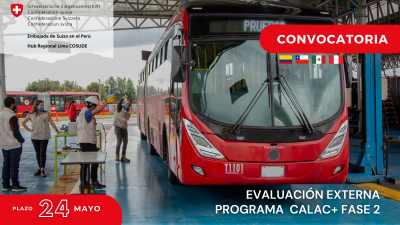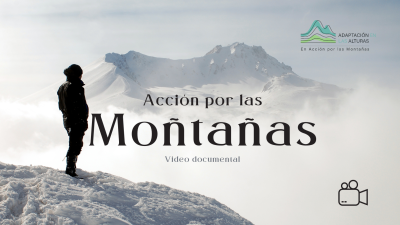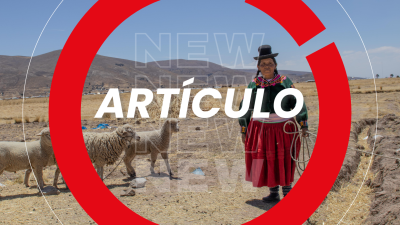For six years, CLIMANDES has helped create the conditions for adaptation to climate change and measures to address it.
A ceremony was held on March 26th, the 50th anniversary of SENAMHI’s institutional life, entitled “Achievements and Learning from the CLIMANDES Project”, chaired by the Swiss Ambassador to Peru, Markus-Alexander Antonietti; Lucía Ruíz Ostoic, Minister of the Environment; Ken Takahashi, President of SENAMHI; Julián Báez, Regional Director for the Americas, Region Association III of the World Meteorological Organization (WMO) and Martin Jaggi, Director of Swiss Cooperation (SDC). This was a milestone that concluded an innovation project for improving and providing climate services for the Andes.
“Ensuring timely climate services that provide greater certainty for sustainable development (…) is a strategy for government action in a context of climate change. This is why Switzerland signed agreements in 2012 to ratify its cooperation with the United Nations World Meteorological Organization, and to implement the Climandes Project,” said Markus-Alexander Antonietti in his inaugural speech.
|
|
|
Markus-Alexander Antonietti Embajador de Suiza en Perú |
“Climandes is the result of the joint work between two countries to the benefit of the local community, which is the most important thing” said Lucía Ruiz, environment minister. She also pointed out that “… what is fundamental to this work is that it has not only been about science or real-time information. It is about how, when science and the ancestral knowledge of those who day by day face climate ups and downs are united, they become a whole”. (Video)
Dialogue with the Weather Masters.Javier Zapana Quispe, a Yatichiri from Puno and Fortunato Puma Condori, a Yachachiq from the Huaccaytaqui community in Cusco, arrived to share their experience. They represent a bridge between ancestral knowledge and new technologies. In their speeches, they stated that the sum of knowledge and the joint work between ancestral knowledge and science has allowed their community to prevent, plan and make decisions in the face of extreme meteorological events, and to be more resilient to the effects of climate change. Local managers in the climate services value chain.
The panel included María Julia Molina, manager of the Tambo de Huaccaytaqui Platform of Action for Social Inclusion (PAIS); Franklin Alejo, presenter of Onda Azul Radio in Puno; Edwin Masilla, technical secretary of the Cusco Regional Council on Climate Change (CORECC) and Victoria Calle, professor and coordinator of the Regional Center for Training in Meteorology at the La Molina National Agricultural University. The panelists agreed on the importance of working together, local communication, local strategies for climate variability and academic capacity building.

Waldo Lavado, coordinator of phase 1 and Grinia Avalos, coordinator of phase 2, presented a balance of the project’s six years in the regions of Junín, Cusco and Puno. They explained that the two phases of Climandes were geared to three main outcomes: i) climate services based on rainfall and drought forecasting, and seasonal forecasting prototypes, in response to user requests; ii) capacity-building for climatology professionals and students to develop high quality climate services, focusing first on the high Andes; and greater awareness of the socio-economic benefits of the use of climate services in public policy formulation and decision making.
High Level Presentation: Climate Services ChallengesThe program included a high-level presentation by Gabriel Quijandría, Deputy Minister of Strategic Development of Natural Resources (MINAM); Jorge Montenegro, Deputy Minister of Development and Agricultural Infrastructure and Irrigation (MINAGRI); Cecilia Romero, specialist in Curriculum, Materials and Educational Resources (MINEDU); and Sandra Gonzalez, Director General of the Department of Intercultural Citizenship (MINCUL).

The aim of the presentation was to share the sectors’ political perspectives and commitments made as a result of the lessons learned from Climandes. It was an excellent opportunity to capitalize on the experience gathered in the regions of Junín, Cusco and Puno and to scale them up to national level.
Ken Takahashi, president of Senamhi, said that they have been working in a way to ensure that the information produced is useful and relevant, not only to close gaps, but to go further, to identify a potential demand where the information could contribute more, which involves not working with peasant communities alone, but with all types of users, and above all with other institutions and the national government. (Video)
Julián Baéz “Climandes is a flagship project for the WMO Americas region. Climandes (…) has been a practical demonstration of the concept of climate services; the basis of everything is in monitoring and observation, research, climate modeling and forecasting, the valuable system of reliable data and finally, the implementation of the user interface platform, a key task for Senamhi, which is a key component of the Global Framework for Climate Services. (Video)
Finally, Martin Jaggi, Director of the SDC, highlighted the fact that in its first phase Climandes focused on the management and data management for developing reliable forecasts; and that in the second phase it focused its efforts on making this information available to users, especially the most vulnerable communities in the agricultural sector. He indicated that in the second half of this year SDC and the WMO will formulate a new regional initiative to replicate and scale up the experience of the project in the region. He also said that Climandes leaves two important lessons: i) climate information serves and contributes to the economy throughout the country and in all sectors; and ii) liaison with other stakeholders makes it possible to achieve results. (Video)
Photos of the event can be seen in this link enlace.
For further information:
CLIMANDES project, project information, Swiss Embassy, Swiss Agency for Development and Cooperation (SDC)
Web Climandes
Web Servicio Nacional de Meteorología e Hidrología del Perú
Web Universidad Agraria La Molina
Web Organización Meteorológica Mundial
Web Meteoswiss










